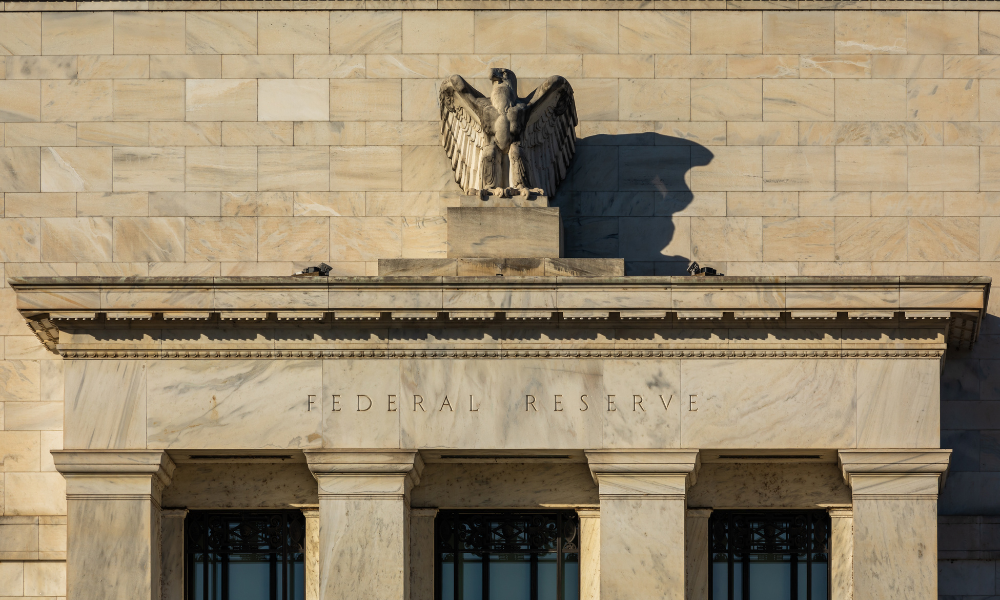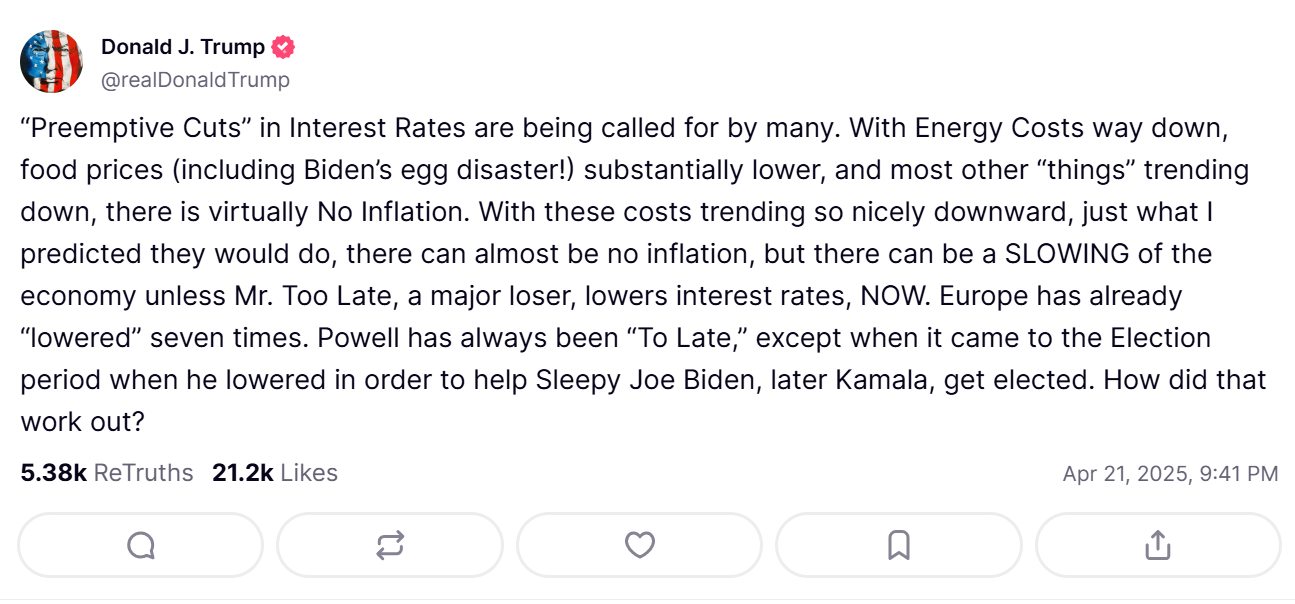Canadian advisors watch US volatility after Trump urges rate cuts and calls Powell "Mr. Too Late"

US President Donald Trump’s ongoing criticism of Federal Reserve Chair Jerome Powell has raised new concerns about the central bank’s independence.
CNBC reports that the tension has unsettled financial markets and reshaped the global interest rate outlook — a key issue for Canadian financial advisors.
According to The Globe and Mail, Trump’s public attacks on Powell have accelerated following the Fed’s warning that the current US-China trade tensions could push inflation higher.
The Fed has stated it may raise interest rates if necessary to control pricing pressures, a move that contrasts with Trump’s demand for rate cuts.
On social media, Trump repeated his claim that Powell is slowing the economy, calling him “Mr. Too Late” and accusing him of undermining his presidency by not cutting rates sooner.
 Source: Donald J. Trump via Truth Social
Source: Donald J. Trump via Truth Social
As per NBC News, Trump also wrote that “preemptive cuts” were now needed, although he did not identify who was calling for them.
These statements follow earlier comments in which Trump said, “if we had a Fed Chairman that understood what he was doing, interest rates would be coming down, too.”
CNBC reported that the White House is now assessing legal pathways to remove Powell, an unprecedented move that would challenge the Fed’s structural independence.
As per The Globe and Mail, some of Trump’s advisers — including US Treasury Secretary Scott Bessent — are reportedly working behind the scenes to prevent drastic action against the Fed.
Canadian advisors have historically viewed the US Federal Reserve as a signal-setter for global monetary policy.
According to CNBC, most economists and investors see an independent central bank as essential for preventing inflation and stabilizing the economy.
Interference by the executive branch may distort rate policy, which could impact not only domestic US borrowing costs but also global markets, including Canada.
Recent market reactions indicate how these tensions may carry cross-border implications.
According to NBC News, the S&P fell 2.4 percent, the Nasdaq dropped more than 2.5 percent, and the Dow Jones Industrial Average lost nearly 1,000 points on Monday.
Bond markets also responded with a sharp sell-off, as the 10-year US Treasury yield jumped to 4.41 percent.
The US dollar weakened to a three-year low, raising questions about its long-standing role as a global safe haven.
The Globe and Mail highlighted that Canadian equities also faced pressure.
The S&P/TSX Composite Index fell 0.76 percent, ending a five-day rally, though materials stocks rose 0.5 percent as gold futures jumped 2.9 percent to US$3,425.30. Gold, often viewed as a hedge in times of uncertainty, has drawn increased interest.
From a planning perspective, Canadian advisors will note that despite market volatility, US economic fundamentals remain intact.
As per LSEG data cited by The Globe and Mail, 68 percent of the 59 US companies that have reported first-quarter earnings so far have exceeded expectations.
The US has also continued to add jobs in 2025, and inflation remains within the Fed’s 2 percent target range.
Still, the threat of unpredictable policy decisions, especially around tariffs and monetary policy, may influence Canadian portfolio strategy.
According to CNBC, a new 16-page draft executive order obtained by the network outlines Trump’s plan to overhaul the US State Department, including the closure of embassies in Southern Africa and withdrawal from international partnerships such as the United Nations.
Trade tensions also remain a point of concern.
As reported by CNBC, China’s Ministry of Commerce warned it would impose “reciprocal countermeasures” against any trade deal that undermines its interests, a response to US efforts to limit other nations’ engagement with China.
Meanwhile, China has left its loan prime rates unchanged — a sign, as per Reuters-polled economists, that the People’s Bank of China prioritises yuan stability over stimulus.
The 1-year rate remains at 3.1 percent, and the 5-year at 3.6 percent.
Finally, CNBC cited Chicago Fed President Austan Goolsbee, who warned that current levels of US economic activity may be artificially elevated due to stockpiling ahead of tariffs, with a potential decline expected by summer.
He pointed to auto and electronics sectors as particularly vulnerable.



